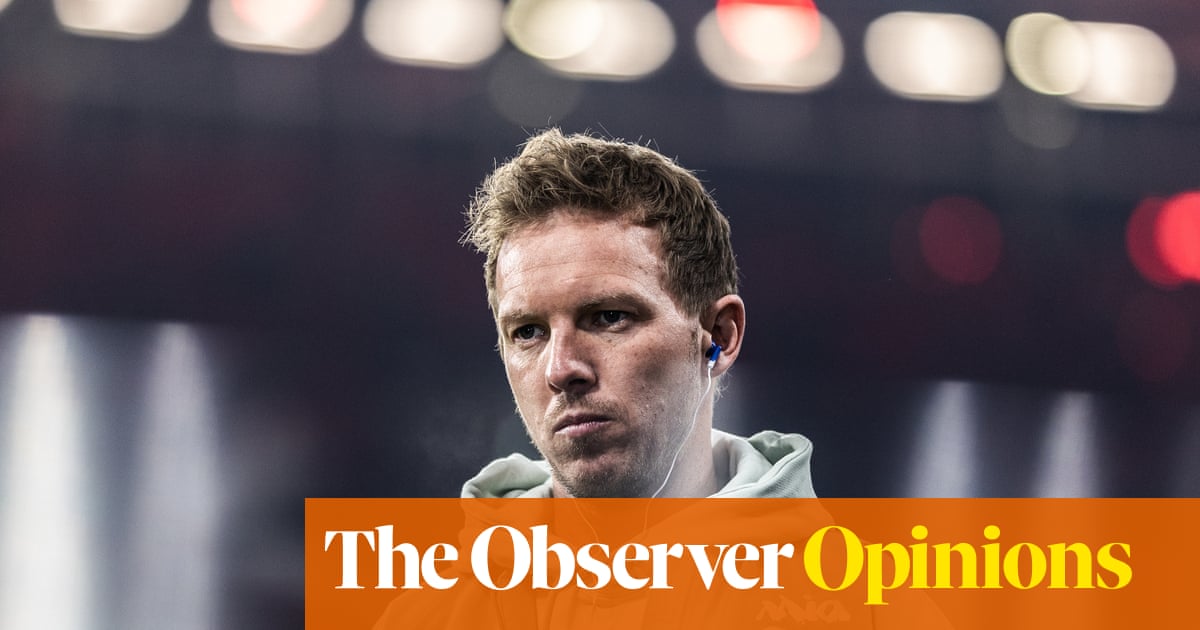
hen Andy Street wants to show off the best of Birmingham to visitors up from London, the Conservative mayor of the West Midlands starts his tour in Centenary Square, a public space the length of two football pitches. To the west stands the International Convention Centre (ICC) and the Symphony Hall; to the north, the Birmingham Rep theatre and the new Library of Birmingham; HSBC’s new UK headquarters lies to the south, while to the east – where Street marches off – is a £700m development optimistically named Paradise. The square and its surroundings, Street claims, is “a statement that this place has refound its self-confidence”.
Perhaps it is. But the buildings that surround the square tell another story of a modern city. The ICC was sold off by the council five years ago to help cover the cost of a £1.1bn equal pay bill after thousands of women had been paid less than men for doing similar jobs. The Birmingham Rep is currently closed and 40% of the staff are likely to lose their jobs. The Library of Birmingham cost £188m, which the city couldn’t afford – and led to cuts in opening times, staff and books at libraries across the city and even the shiny new centrepiece itself. HSBC is supposed to bring 2,200 people into the city centre every day but, since Covid-19, the proportion of staff coming in, Street estimates, is around 35%. He is confident that, once Paradise is complete, the new office blocks will be full and the restaurants busy, but pinning one’s economic hopes on city-centre jobs feels optimistic in the midst of a pandemic.
The city centre may bounce back, but the city itself will need much more than office blocks and boosterism. By every possible economic metric, Britain’s second largest city is in crisis. Its official unemployment rate is 9.8%, second only to Blackpool with 9.9%. Many more Brummies are likely to add to that tally. Birmingham has more people on furlough – 55,400 – than any other local authority in the country. Once the city of a thousand trades, manufacturing jobs have dramatically declined: one in five worked in manufacturing in 1999, but it was one in 10 by 2019. Far too few of those jobs have been replaced; and where they have, they are predominantly low-paid, low-skilled and low-security. To make matters worse, Birmingham is a young city – almost half the population is under the age of 30.
And then there is Brexit. “If there is no deal, we will be one of the worst-affected areas of the country ” admits Street, a proud Remainer. “If I had been an MP, I would have been one of the 21 losing the whip,” he says, referring to the purge of MPs who voted against a no-deal Brexit.
Birmingham’s big bet of the past decade was retail. The Bull Ring was rebuilt with a new Selfridges at its heart, the Mailbox brought Harvey Nichols to the city, and, five years ago, a new shopping centre was created on top of New Street station, with John Lewis as the anchor tenant. In a symbolic blow to the city, the department store recently announced that, after closing during the first lockdown, it would not reopen. Street, who was managing director of the retailer for nine years, admits he felt “rotten” when it was announced.
John Lewis’s closure has had a devastating effect on the rest of the shopping complex that was supposed to be the glitzy new heart of the city. A few days before Birmingham was plunged back into lockdown alongside the rest of England, it was near-empty. Some smaller shops had also permanently closed; others were plastered with signs proclaiming sales – 30%, 50%, 70% off. At lunchtime, several cafes and restaurants didn’t open their doors. Electronic billboards that once advertised the autumn/winter range at Selfridges or the latest iteration of the iPhone switched between messages promoting social distancing and test and trace. John Lewis was not the only big name to pack up. Gap’s huge Bull Ring store was advertising its closing-down sale. Curry’s/PC World was already gone.
Some of the smaller outlets, which relied on the big shops drawing in the crowds, were understandably struggling. In an empty hairdresser’s, a barber scrolled through his phone, waiting for the first customer of the day. A few doors down, a clothes shop assistant admitted to selling a single pair of trousers all morning.
Before the pandemic, Birmingham was “making steady progress”, says Andrew Carter, the chief executive of the Centre for Cities thinktank, boosted by “the re-emergence of the city centre as a place for firms and for people to come to live”.
The unemployment figures surprised Carter. “You don’t think of Birmingham in your top five struggling places.” The numbers don’t just matter for those who live here. While a small town’s struggles affect that town’s population, Birmingham’s affect the wider region. “If Birmingham is struggling, that has wider consequences for the country at large.”
This is a crisis, but it’s a strangely silent one. While the mayor of Greater Manchester, Andy Burnham, has barely been out of the media, Andy Street has had a quiet pandemic. Few national media outlets appear to have noticed Birmingham’s crisis either – perhaps not surprising when no national newspaper has a correspondent here. “Birmingham gets ignored,” says Carter. “That worries me.”
Street, who has now led me through the city centre to a thriving cafe, is less concerned. In a coded swipe at his fellow Andy, he says he is “less inclined to rush to a microphone”, preferring to phone “Matt”, as he refers to the health secretary. “You can’t expect to be treated well and your judgment taken into account if you’re always going on television criticising people,” he says. “I do think it’s really important that somebody who is championing the region should have those relationships with central government.”
The criticism from some in the city is not that Street has a relationship with central government but that he doesn’t have a relationship with the less glamorous parts of the city. It is easy to be upbeat about the city centre. But Birmingham’s crisis is being felt more deeply elsewhere.
The number 50 bus leaves the city centre from outside the Selfridges building. Over the course of 20 minutes – if the traffic is OK – it moves south through Balsall Heath, Moseley and Kings Heath, before heading out to the very edge of the city and terminating in Druids Heath.
It is colder and windier here – the next highest point east is the Ural mountains. It is also poorer – the most deprived ward in the city. Created in the 1960s around a series of 16 tower blocks, the early glow of the new has long since faded.
Two of the towers have already come down and the rest, residents say, are not being properly maintained. “It’s a community, people support each other,” says Jayne Murray, an artist who works in the area. “But employment is low and people are really struggling.”
The community that Murray speaks of is hard to maintain when there are hardly any communal areas. Druids Heath’s three pubs have all closed down: the Gladiator is now sheltered housing, the Maypole is a Halfords and the Cartland Arms a McDonald’s. There might be lots of green space but there are no playgrounds. Internet access is limited; smartphones and laptops are not common.
There are three primary schools, but the only local secondary school, Baverstock, closed down in 2017, meaning every child in Druids Heath has to go to secondary school elsewhere.
A generation ago, Baverstock would have been saved: the local education authority would have understood the damage done to a community left without a secondary school. But Baverstock was an academy. When the academy chain gave up on it, the government insisted it could remain open only if it found a new sponsor. Perhaps unsurprisingly, no other academy chain thought a struggling school in a deprived area was worth investing in. For the past three years, it has been left, abandoned. There have been break-ins, smashed windows and, last month, arsonists tried to burn it down. The council has spent £120,000 a year paying for 24-hour security but no one has found any money to pay for actual education.
“We’re right on the edge of the city,” says Murray. “People feel forgotten.”
Druids Heath’s Labour MP, Steve McCabe, surveying the economic crisis engulfing the city, fears where it will lead. “I worked in Wolverhampton in the late 70s and early 80s. It was the era of riots. We’re going back to exactly that kind of situation. We are very close to breaking point.”












